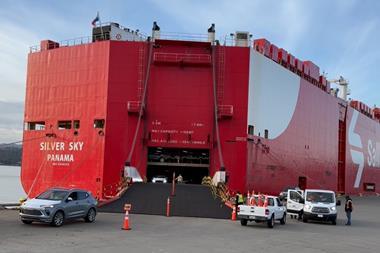 Electric carmaker Tesla Motors has announced plans to invest $5 billion in a car battery plant in an as-yet undecided location in a southern US state.
Electric carmaker Tesla Motors has announced plans to invest $5 billion in a car battery plant in an as-yet undecided location in a southern US state.
“In cooperation with strategic battery manufacturing partners, we’re planning to build a large scale factory that will allow us to achieve economies of scale and minimise costs through innovative manufacturing, reduction of logistics waste, optimization of co-located processes and reduced overhead,” said the company in a statement on its blog.
The site, which is expected to be selected shortly, will be constructed in either Nevada, Arizona, Texas or New Mexico. It will have an output capability rate of up to 500,000 lithium ion packs per year for vehicles by 2020, the company hopes. This would effectively give it a greater output annually than the rest of the world combined within the next six years.
Proposals envisage a 10m square-foot facility, in what would be classified as a ‘gigafactory’, and will be supplied primarily by wind and solar energy. Other carmakers operate similar plants, but this would be the first on such a grand scale committed to reducing costs of the electric components. To facilitate this, Tesla expects to employ 6,500 workers at the plant.
The plant has an anticipated opening for 2017, and comes under Tesla’s umbrella project to supply affordable electric vehicle parts and finished vehicles. It would become the first US-based facility to produce battery cells for such cars.
Tesla said that the factory would allow it to reach its goal of producing a mass market electric car in approximately three years. Adding that it had the opportunity to use demand for lithium ion batteries to reduce their cost faster than previously thought possible.
"The gigafactory is designed to reduce cell costs much faster than the status quo and, by 2020, produce more lithium-ion batteries annually than were produced worldwide in 2013,” said the company.
In recently-released fourth quarter results, Tesla reported strong sales of its luxury Model S electric sedan, which it hopes will increase by 55% this year to over 35,000 vehicles.
In the past, the cost of maintaining electric vehicles has been a major hindrance to potential buyers in the US market, but shifting the focus of manufacture to one place will, according to Tesla, reduce the price of batteries and centre material, cell, module and pack production to one spot.



































